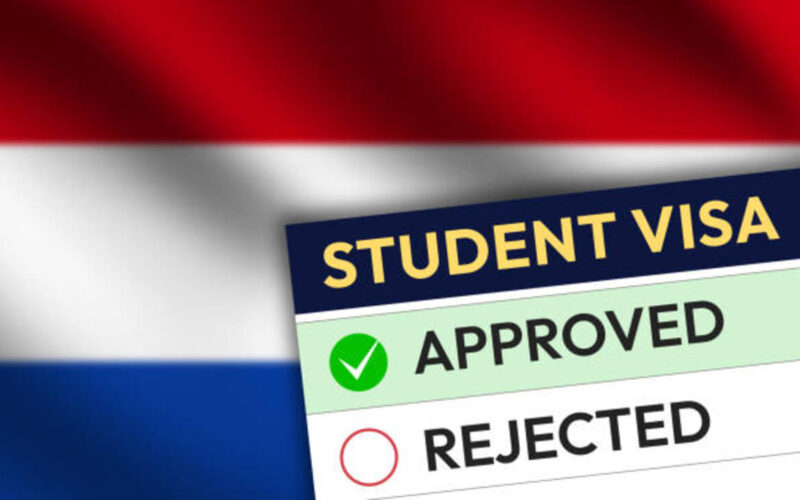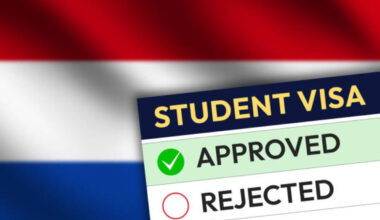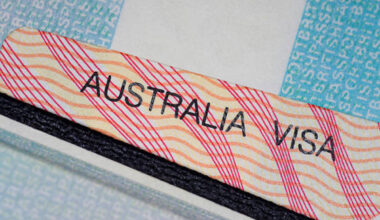The Netherlands’ rich culture, high-quality education, and friendly atmosphere attract international students.
Advertisement
Before you can begin your educational journey in the Netherlands, you must obtain a Netherlands study visa.
A comprehensive guide covering everything you need to know about the Netherlands Study Visa for immigrants, including visa sponsorship and eligibility requirements.
Advertisement
Understanding the Netherlands Study Visa
Study visas are mandatory for non-EU/EEA students, officially known as MVVs (Machtiging to Voorlopig Verblijf) and VVRs (Verblijfsvergunning for Students). With this visa, you can stay in the Netherlands for the duration of your study program.
Types of Study Programs Covered
International students can choose from a wide range of study programs in the Netherlands, including:
-
Bachelor’s Degree Programs: Typically 3 to 4 years in length, these programs cover the arts, sciences, and engineering.
-
Master’s Degree Programs: The duration of a master’s program ranges from one to two years, and it provides advanced knowledge and specialization.
-
Ph.D. Programs: Doctoral degrees require three to four years of study, and they often involve conducting research under the supervision of a faculty member.
-
Exchange Programs: Several Dutch universities offer exchange programs to foreign students.
Duration of Stay
Bachelor’s degree students receive visas valid for three to four years, while master’s degree students receive one to two years. Students pursuing a PhD usually receive a visa valid for the duration of their studies.
Eligibility Requirements for the Netherlands Study Visa
Make sure you meet the Dutch government’s eligibility requirements before applying for a study visa. Generally, these criteria include:
1. Admission to a Recognized Educational Institution
A study visa can be obtained by studying at universities, colleges, and other accredited institutions accredited by the Dutch Ministry of Education.
2. Financial Proof
Studying in the Netherlands may require you to prove financial stability, which includes tuition fees, living expenses, and health insurance, depending on your study program.
3. Health Insurance Coverage
International students studying in the Netherlands are required to have Dutch health insurance or an international health insurance policy that covers healthcare costs.
4. Proficiency in the Language of Instruction
Typically, standardized tests like the IELTS or TOEFL are required for students planning to study at Dutch universities. A Dutch language proficiency test may also be required for students planning to study in Dutch.
5. Valid Passport
It is important to ensure that your passport won’t expire while you are studying in the Netherlands.
Netherlands Study Visa Application Process
Here is a detailed breakdown of the steps involved in obtaining a student visa in the Netherlands:
Step 1: Admission into a Netherlands Institution
The first step is to apply for admission to a Dutch educational institution. An official acceptance letter is required to apply for a visa.
Step 2: Gather the required documents
Gather all the necessary documents for your visa application. Documents commonly required include:
-
Valid passport
-
Acceptance letter from a Dutch educational institution
-
Proof of financial means (bank statements, scholarship letters, etc.)
-
Health insurance policy details
-
Language proficiency test results
-
Recent passport-sized photographs
Step 3: Application for a visa must be completed
Visa application forms are typically available on the website of the Dutch embassy or consulate in your country. Make sure that all the information on your application matches the supporting documents.
Step 4: Application Submission
Send your application to the Dutch embassy or consulate in your country once it has been completed. Depending on your nationality, you might also have to pay a visa processing fee.
Step 5: Participate in an interview (if required)
Consulates may conduct interviews to learn more about your plans for studying in the Netherlands. The interviewer will ask you about your study program, financial situation, and future plans.
Step 6: Wait for Processing
Once you submit your application, you must wait for it to be processed. The process usually takes between four and twelve weeks. Information about your application’s status can be obtained from consulates and embassies.
Step 7: Receive Your Visa
Upon approval, your study visa will be issued. Check all details of your visa during your stay and keep it with you at all times.
Student Visa Sponsorship in the Netherlands
The visa sponsor is an essential part of the visa application process for international students. The importance of understanding how visa sponsorship works cannot be overstated.
What is Visa Sponsorship?
The Netherlands’ educational institutions act as visa sponsors by supplying essential documentation and confirming your acceptance into their programs.
Responsibilities of the Sponsor
As a visa sponsor, you have specific responsibilities, including:
-
Providing an official acceptance letter
-
Confirming that you have met the eligibility requirements for the program
-
Assisting with your residence permit application, if applicable
Requirements for Institutions Offering Visa Sponsorship
Visa sponsorship is not offered by all educational institutions. The institution must meet the following requirements in order to qualify as a sponsor:
-
Be registered with the Dutch Immigration and Naturalisation Service (IND)
-
Offer programs recognized by the Dutch Ministry of Education
-
Comply with regulations related to international students
Living in the Netherlands as a Student
After you receive your study visa and arrive in the Netherlands, it’s imperative that you become familiar with life as an international student. The following are some key factors to consider.
1. Finding Accommodation
Finding suitable accommodation will make your stay more enjoyable. International students have several options, including:
-
University Dormitories:It is convenient to live in student housing at many universities.
-
Shared Apartments:Students tend to rent rooms in shared apartments because they are more affordable.
-
Private Rentals:Consider renting a private apartment if you prefer more independence.
You should begin your search early if you wish to live in a popular city such as Amsterdam or Utrecht.
2. Opening a Dutch Bank Account
In order to manage your finances more easily in the Netherlands, you should open a local bank account. A copy of your identification, proof of your residency, and proof of enrollment will be requested.
3. Healthcare in the Netherlands
Health insurance is mandatory for international students. Get information on registering with a general practitioner (GP) and getting medical help when necessary.
4. Cultural Integration
Studying in the Netherlands is more enjoyable when you embrace the Dutch culture. Become involved in local events, join student organizations, and get to know your peers to build a support network.
5. Student Support Services
Almost all Dutch universities offer academic advising, counseling services, and language courses to international students. Use these resources to succeed in your studies.
Working While Studying in the Netherlands
Working part-time during your studies may be possible for international students, but you must follow certain regulations.
1. Work Regulations for Students
-
EU/EEA Students:The Netherlands allows EU/EEA students to work without restrictions.
-
Non-EU/EEA Students: The maximum amount of time students outside the EU/EEA can work per week during the academic year is 16 hours, or full-time during the summer. It is possible, however, for your employer to apply for a work permit on your behalf if you need one.
2. Finding Part-Time Employment
A variety of part-time jobs are available to international students, including hospitality, retail, and tutoring. There are many job posting websites, such as Indeed, Glassdoor, and local job boards, where you can find jobs.
3. Balancing Work and Studies
Part-time work is helpful for covering living expenses, but maintaining a balance between work and study is essential. If you have a job, you should make sure that it does not interfere with your academic commitments.
Transitioning to a Long-Term Visa
If you are planning to stay in the country after you graduate, you may wish to switch to a long-term visa. Consider these options:
1. Orientation Year for Graduates
The Netherlands allows international graduates to stay for up to a year after graduating in order to find a job. Work permits are not required during this period.
2. Highly Skilled Migrant Visa
In order to qualify for a highly skilled migrant visa, which allows you to work and live in the Netherlands, you must meet specific salary requirements.
3. Permanent Residency
It is possible to obtain permanent residency in the Netherlands after living in the country for a certain time period and meeting certain requirements.
The applicant should be proficient in Dutch, have financial stability, and have integrated into the culture of the Netherlands.
Taking part in a study program in the Netherlands can be an exciting experience for international students.
Making the right choices throughout your journey is easier if you know the requirements and processes associated with the Netherlands Study Visa and visa sponsorship.
Students who prepare thoroughly, embrace the vibrant culture, and enjoy their time in this beautiful country have many educational opportunities to choose from.
You will gain invaluable skills and knowledge during your time in the Netherlands, whether you choose to return home or stay for a longer period of time






